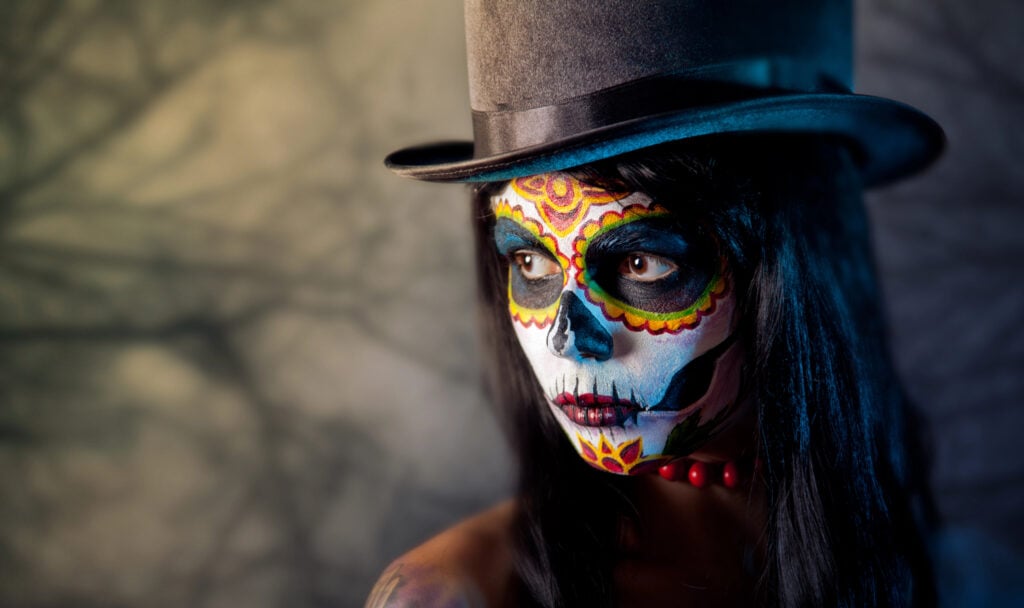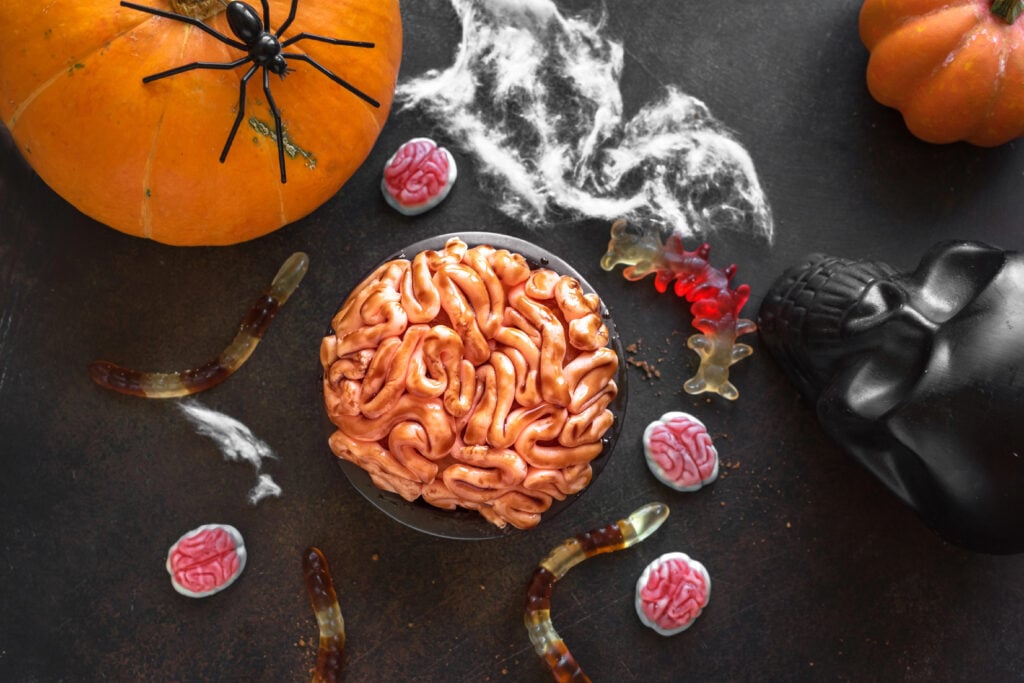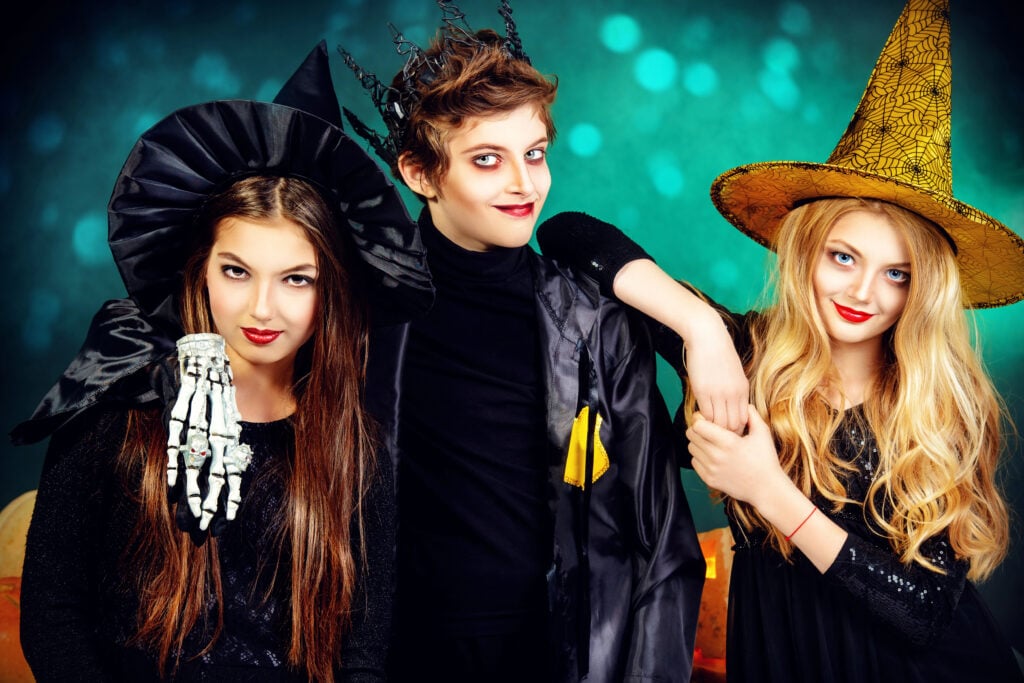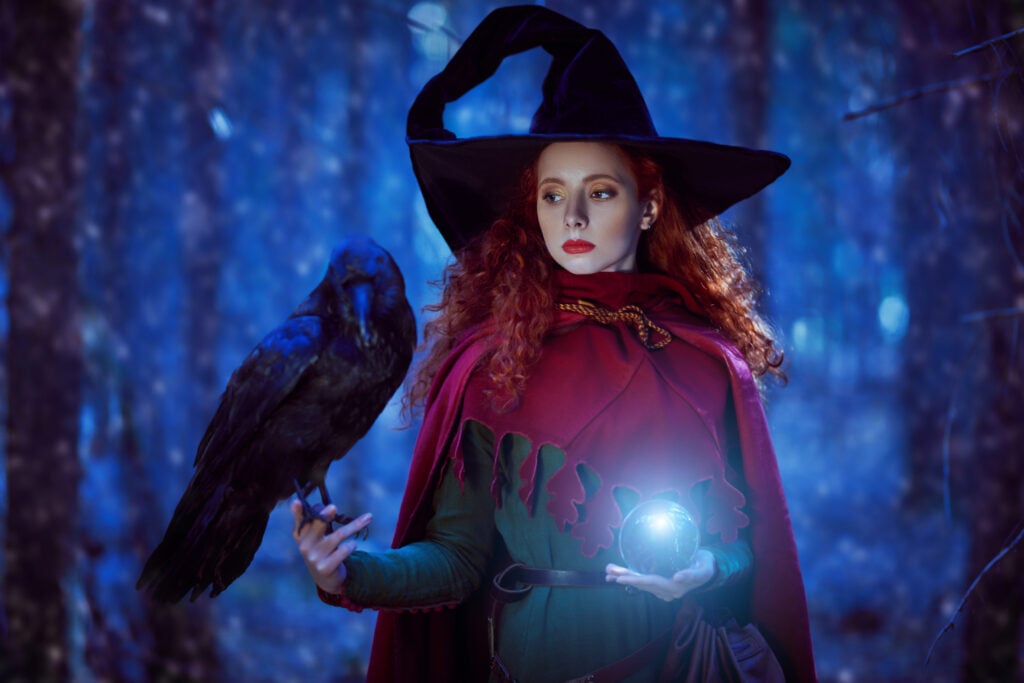
As a culture, we tend to think of Halloween as a holiday for younger children, their parents, and the overly enthusiastic. Teens end up being left somewhere in the middle. Some believe that teenagers are “too old” to dress up and trick-or-treat and won’t give older kids candy when they come by. Yet researchers and psychologists agree that dressing up for Halloween and trick-or-treating are psychologically beneficial for teens.
Personally, as an adult, I still enjoy dressing up for Halloween. There’s something fun about putting on a costume, changing your appearance, and becoming a different character for a little while. My oldest is 15, and my youngest is 9. We have no plans to restrict them from dressing up in the future.
Yes, Halloween looks a little different with a teenager—she likes to go with her friends, not her parents— but allowing her to do so gives her social opportunities, builds her independence, and strengthens her decision-making skills.
Here’s what the experts have to say about teens dressing up for Halloween.
Brain Benefits Of Dressing Up

According to Dr. Barbara Pedalino, allowing older children to dress up for Halloween will enable them to stay connected to childhood. Teens are in that awkward stage of life where parts of them still want to be kids, cared for, but they are also searching for independence and autonomy. Dressing up for Halloween or participating in cosplay allows teens (and adults) to reconnect with their imagination and childhood.
Self-expression and exploring personality are two more reasons to allow our teens to dress up for Halloween, according to the team at Therapy Connection Online. Teen years are often spent establishing one’s personality, likes, and dislikes, and are filled with self-discovery. Putting on a costume for Halloween allows kids and teens to try out different aspects of their personalities and can be an experiment in their own sense of style.
Halloween is also a time to give our teens a short-lived creative outlet. Dr. Michael Oberschneider, a nationally certified custody evaluator and parenting coordinator, explains that Halloween is a great time to explore creativity and imagination. Allow your teen time, space, and freedom to stretch their creativity. If you have restrictions on appropriate costume ideas, make sure to discuss them early, not the night before. My daughter wants to go as a Victoria’s Secret Angel. Now, before you gasp and think she’s parading around in her underwear, we discussed appropriateness, the why behind the costume, and confirmed she’s wearing a dress she already owns with a pair of wings.
Halloween can also be an excellent opportunity for your teen to build self-esteem. Teens, especially those who make their own costumes, can gain a boost in self-esteem from dressing up. I mean, think of the last time you ‘got fancy,’ you probably felt good, right? And who doesn’t like to be complimented on the way they look or told their costume is cool?
Social Benefits Of Trick Or Treating

Practicing Social Skills is sometimes an overlooked benefit of trick-or-treating, and it applies to teens as well. Dr. Ansley Gilpin, a professor of Psychology at the University of Alabama, explains that allowing teens to trick-or-treat requires them to interact with a variety of people, giving them ample opportunity to build social and communication skills, build confidence in communicating with strangers, and maybe even practice their manners.
Therapist Jessica Hunt also encourages the practice, which she says builds independence. Teens who are responsible enough to walk around with friends have a fantastic opportunity to develop their autonomy, freedom, and resilience.
Along with autonomy is the ability for children to learn to make decisions. Giving your teen freedom means allowing them to make their own decisions; consider trick-or-treating a time to discuss healthy limits and personal boundaries, as well as family rules and expectations.
As a bonus for parents, it may be a safer environment alternative to your teens heading off to Halloween parties. While there can be incidents on Halloween, in general, walking around with a group of friends trick-or-treating is relatively safe. Be sure you talk with your teen about accepting drinks, food, or other items from strangers, but hopefully by their teenage years, they are well-versed in what is safe and what is considered bad practice.
Tips For Teen Trick Or Treating

Before the big day, make sure you discuss expectations, rules, and boundaries with your teen. Below are some good ideas to talk about:
Who – Who are they trick-or-treating with? Will a parent be part of the group? If a parent isn’t present, are you okay with it?
Where – What neighborhood are they going to? Do they plan to visit a few different neighborhoods?
Transportation – Do they need to be picked up or dropped off at a friend’s house? If they are going to different neighborhoods, is a friend or parent driving them around? Is it someone you are comfortable with and who is responsible?
Curfew – If your teen can drive, or is getting a ride, make sure you clarify what time they need to be home, or what time and where you are picking them up.
Appropriate Behavior – Talk with your teen about what they should do in different scenarios if they feel uncomfortable, want to leave, or if their friends want to do something or go somewhere they know isn’t right. Confirm with your teen that they can always call you, and that you will answer without anger or judgment. If you do have to pick up your teen, remember you are their safe space, and they made a good choice by calling you. Try not to get angry or frustrated with them.
If you need help discussing some of the harder topics with your teen, here are a couple of articles from the American Academy of Pediatrics to help you get going: A Parent’s Guide to Teen Parties and Independence, One Step at a Time

